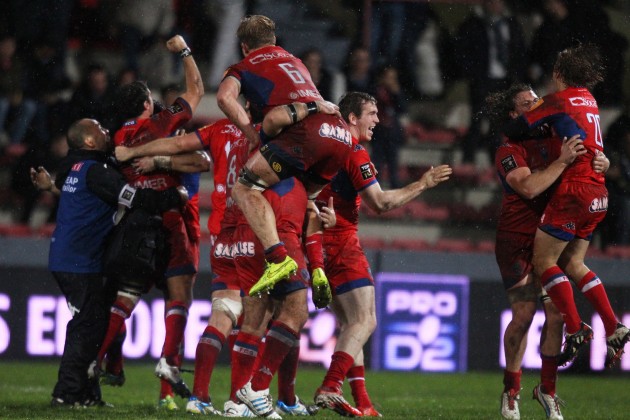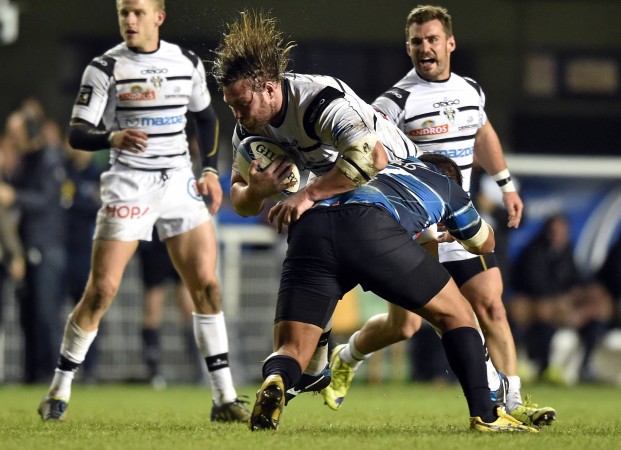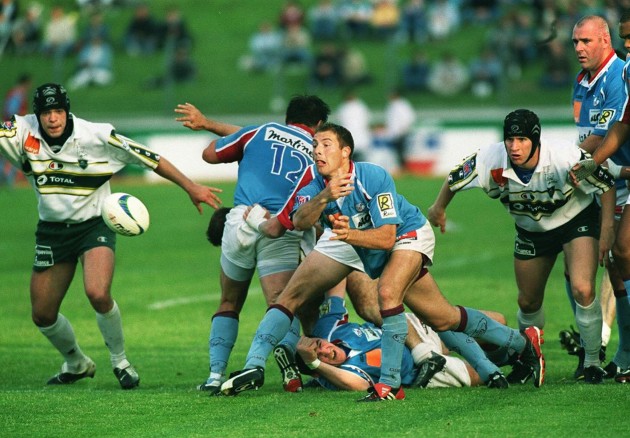There’s a revolution underway in French rugby, one that is having ramifications for the home nations. We’ve already seen evidence of it in October when Toulon, Toulouse and Racing Metro all won away in the European Champions Cup. Three victories on the road for French clubs and we’re only two rounds into the tournament. Contrast that to the 2007-8 Heineken Cup season when the six French clubs managed only four victories in 18 away matches – and none against an English or Irish club.
This weekend Racing Metro will fancy their chances of returning from the Ospreys with a win, while Toulon will travel to stuttering Leicester Tigers with a confidence that Clermont might find hard to muster as they head to Munster.
But win or lose at Thomond Park, Clermont will put up more of a fight than some French clubs in the past. The Heineken Cup has witnessed many a dismal French surrender on foreign soil, from Toulouse capitulating 77-17 to Wasps in 1996 to Leinster’s 50-point drubbing of Bourgoin in 2005 to Northampton Saints’ 34-0 shellacking of Perpignan in January 2010, who at the time were champions of France.
It used to be a similar story in the Top 14. The likes of Toulouse, Stade Francais, Biarritz and Clermont – the powerhouses of French rugby a few years ago – would often have the wherewithal to win away, but few of the so-called smaller clubs would ever steal a victory l’extérieur.
That mindset is fast disappearing. The Top 14 hasn’t even reached the halfway mark of the season and already there have been startling results on the road, none more so than Grenoble’s 25-22 stoppage time victory at Toulouse on Saturday. Add Oyonnax’s triumph at Racing, Brive’s 25-10 thumping of Montpellier and, in a troubled season for the Mediterranean outfit, their own win at Clermont, and a picture emerges of a league where sides now hit the road believing they can win.
What’s brought about this change in philosophy? Simple. Money. A decade ago the majority of players and coaches in the Top 14 were French. There were some great talent but it had been reared on l’esprit de clocher [literally, ‘the spirit of the bell tower’ but also a euphemism for parochialism]. A few years ago I discussed this ‘spirit’ with Philippe Saint-Andre, at the time director of rugby at Sale Sharks. “Even in the professional era there is still a ‘win at home, lose away’ mentality in French rugby,” explained PSA. “You could call it l’esprit de clocher.’”
Saint-Andre drew on his own experience coaching Bourgoin from 2002 to 2004 to illustrate his point. “When I was there about 60% of the squad came from Bourgoin,” he told me. “At home the players were playing in front of their friends and family. They knew most of the spectators and knew they were playing for the honour of Bourgoin. It was as if they were ready to die for the town.”
I knew what he meant. At the time of our interview I was playing for a club on the outskirts of Montpellier and the games I feared most were the ones that took me into the charming Languedoc countryside. Here the locals regarded us as city slickers to be slaughtered. The entire village would turn out, encircling the pitch and creating atmospheres ranging from the intimidating to the incendiary. In such a white-hot cauldron of emotion the home team would do whatever it took to win – even if it included gouging, stamping and butting. Meet that same side away, however, and they would often go down without so much as a whimper.
Bourgoin were in the top-flight of French rugby when Philippe Saint-Andre was in charge. Ten years on and no club in the Top 14 is able to boast that 60% of its players are homegrown. Instead of local lads there are outsiders – Bothas, McAlisters, Roberts and Nalagas – players who have no concept of l’esprit de clocher.
They are highly paid – but more significantly – highly-motivated men who want to win every game they play. Some call them mercenaries, a silly and emotive word that means what exactly? According to the Oxford English dictionary a mercenary is someone “motivated primarily by the desire for gain”.
That sounds about right, a desire for gaining the win, home and away. Here’s to professional pride and the death of the l’esprit de clocher.







